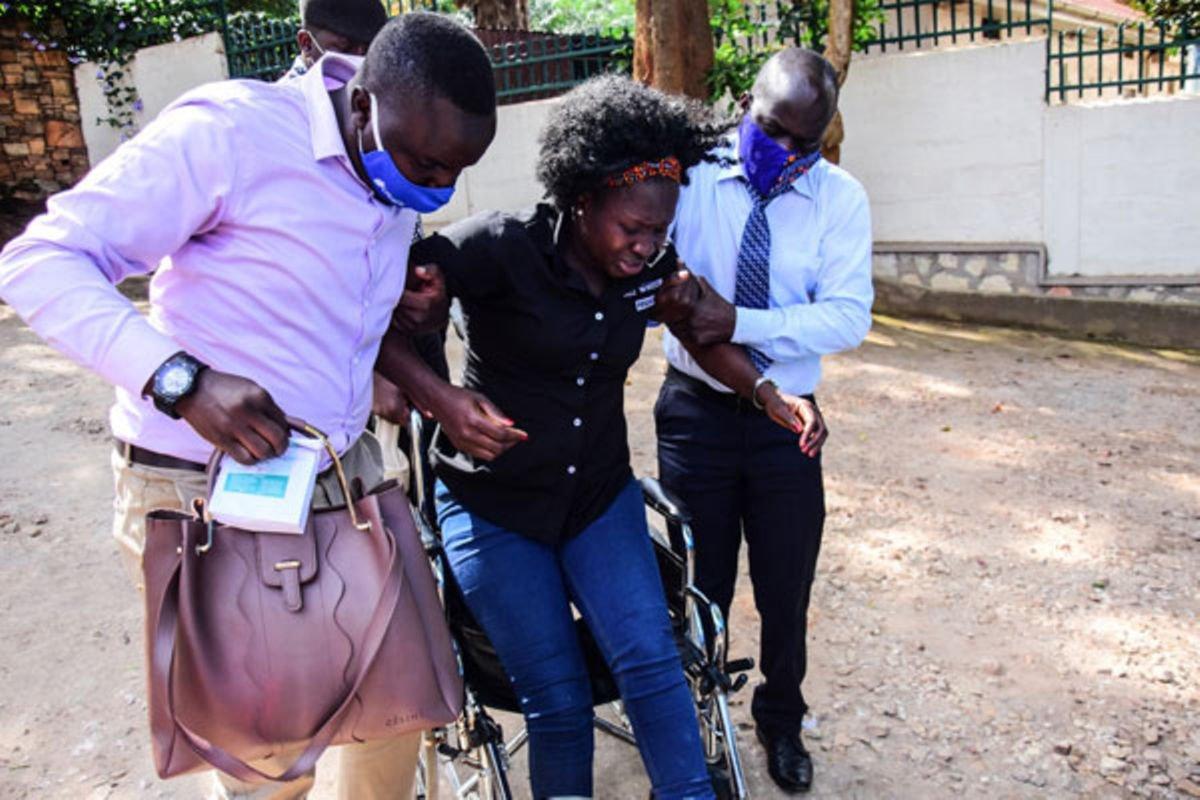Africa-Press – Uganda. The UN Human Rights Council (UNHRC) has advanced its commitment to the safety of journalists after adopting a resolution with measures for states to ensure journalists’ full protection.
This year’s resolution includes a range of new elements that provide an accurate reflection of major challenges that journalists and media workers face such as attacks on freedom of expression both off and online, impunity, ineffective investigations into media attacks and strategic lawsuits against public participation.
The resolution was reached during the 51st Ordinary Session of the Human Rights Council, which is the premier body within the UN responsible for addressing human rights violations, including the right to freedom of opinion and expression.
“The threats faced by journalists are only growing more complex. Across the world, journalists are killed, attacked and harassed for their vital work, only to be met with ineffective investigations and impunity,” Mr Callum Birch, the Article 19 UN Advocacy Officer, said.
“They are faced with increasingly insidious forms of legal harassment, such as strategic lawsuits against public participation, also known as SLAPPs, from powerful actors attempting to bankrupt and silence them,” he added.
The Resolution also points out mandatory licensing or restrictive accreditation as some of the schemes that continue to undermine the work of journalists and media workers, which member states like Uganda need to reconsider.
“We welcome the resolution’s focus on the need to address contemporary challenges and threats faced by media workers in the digital age, including online attacks against women journalists, and targeted digital surveillance,” Hwang Joon-kook, the Permanent Representative of the Republic of Korea to the UN, said.
This resolution comes at a time when the Human Rights Network for Journalists (HRNJ) Uganda and other civil society organisations are appealing to President Yoweri Museveni not to sign the Computer Misuse Amendment Bill into law.
The organisations say the Bill, recently passed by Parliament, is a bad law meant to protect the corrupt while penalising those demanding accountability from their leaders.
Mr Robert Ssempala, the executive director of HRNJ-Uganda, said the Computer Misuse (Amendment) Bill, 2022, is aimed at gagging media freedom and freedom of expression.
“On August 25, we appeared before the Information and Communication Technology Committee of Parliament to present our views about the Computer Misuse (Amendment) Bill 2022. Unfortunately, on September 8, Parliament passed the said Bill without due consideration to our submissions,” Mr Ssempala said.
It is reported that during the public hearing, the ICT sub-committee of Parliament received a total of 17 submissions through public hearings, which all expressed concern over repetitive legislation and lack of basis for the Bill. It is still unclear how the committee ended up with a report in support of the Bill.
The Bill has a number of provisions, including criminalising unauthorised access to information, sending unsolicited information, publishing photos of children without parental consent and publishing false and malicious information.
Mr Ssempala said the amendment is a direct slap in the face of Article 29(1) (a) of the Constitution of the Republic of Uganda, which protects the right to freedom of expression, including the freedom of the press and media.
“The criminalisation of free sharing of information shall certainly stifle this and shall frustrate the exercise of this type of journalism, as much as it will the professional one too. The ultimate effect of this is to contravene the Constitution,” he said.
According to him, people who feel that their information has been wrongly shared or misrepresented, have an option of instituting civil action against the alleged perpetrators.
For example, he said, Clause 3 of the Bill that seeks to create the offence of unauthorised sharing of information about children, is covered under the Children’s (Amendment) Act, 2016, which already puts in place the right of children to privacy, and makes it an offence for anyone.
This year’s UN Resolution also builds on the previous version of the 2020 resolution that took an ambitious approach to protect journalists in accessing and disseminating information, setting strong standards for governments amid the Covid-19 pandemic.
For More News And Analysis About Uganda Follow Africa-Press






